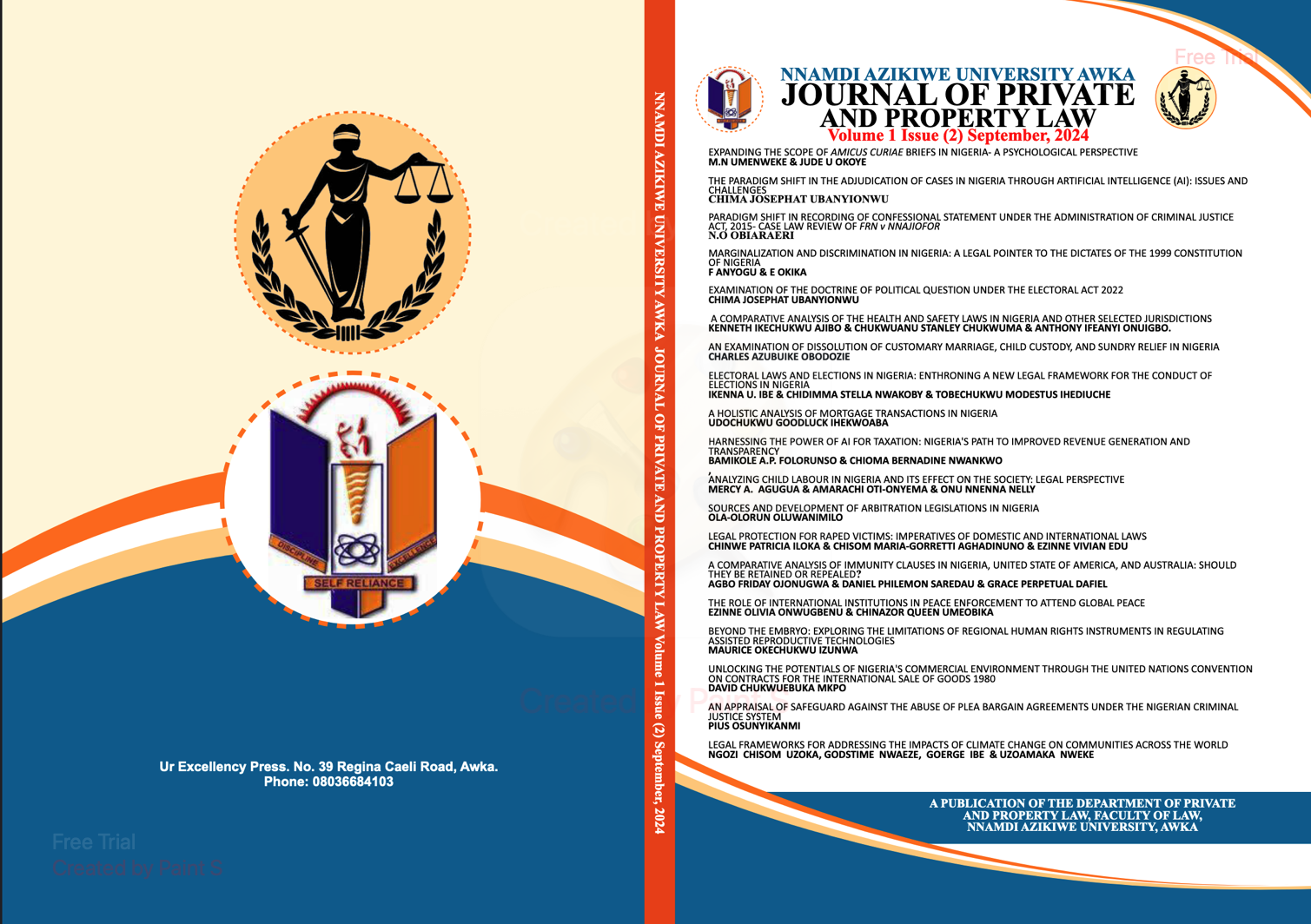ELECTORAL LAWS AND ELECTIONS IN NIGERIA: ENTHRONING A NEW LEGAL FRAMEWORK FOR THE CONDUCT OF ELECTIONS IN NIGERIA
Keywords:
Constitution, Election, Electoral Act, Election Petition, INECAbstract
It is settled law and principle that the definitive aim of a truly democratic nation is to conduct free, fair,
credible, and transparent elections. Election as a core democratic process, underscores the strength of
the electorate’s power in determining political power positions. However, Nigeria is known to have
conducted elections damaged by rigging, vote buying, a re-run of elections, irregularities, malpractices,
declaration of the election as inconclusive and the likes. Since the birth of the Fourth Republic, the
conduct of elections in Nigeria has been overwhelmed with accelerating malpractices in the
electioneering process. The trend has worsened with each round of elections, as epitomized by the 1999,
2003, 2007, 2011, 2015, 2019, and 2023 polls. These structural problems have necessitated the reform of
the electoral system, including the legal framework of the electoral process that will ensure substantial
free and fair elections. It is an uncontroverted fact that the innovations introduced by the various Acts
have not produced the desired results as the just concluded 2023 general elections were marred by
institutional feebleness. Accordingly, the paradoxes and shortfalls of the current electoral laws proclaims
great threat for Nigeria’s subsequent general elections. To address this, this study evaluated the
challenges and pitfalls of the legal framework for the conduct of free, fair, credible and transparent
elections in Nigeria. Hence, it observed that the most recent, 2023 general elections were marred by
colossal irregularities as a result non implementation of the new innovations and inadequacies of the
electoral laws. Consequently, it is submitted that the electoral system and processes should be
restructured to meet the increasing demands and tasks of the modern day Nigerian political environment.

